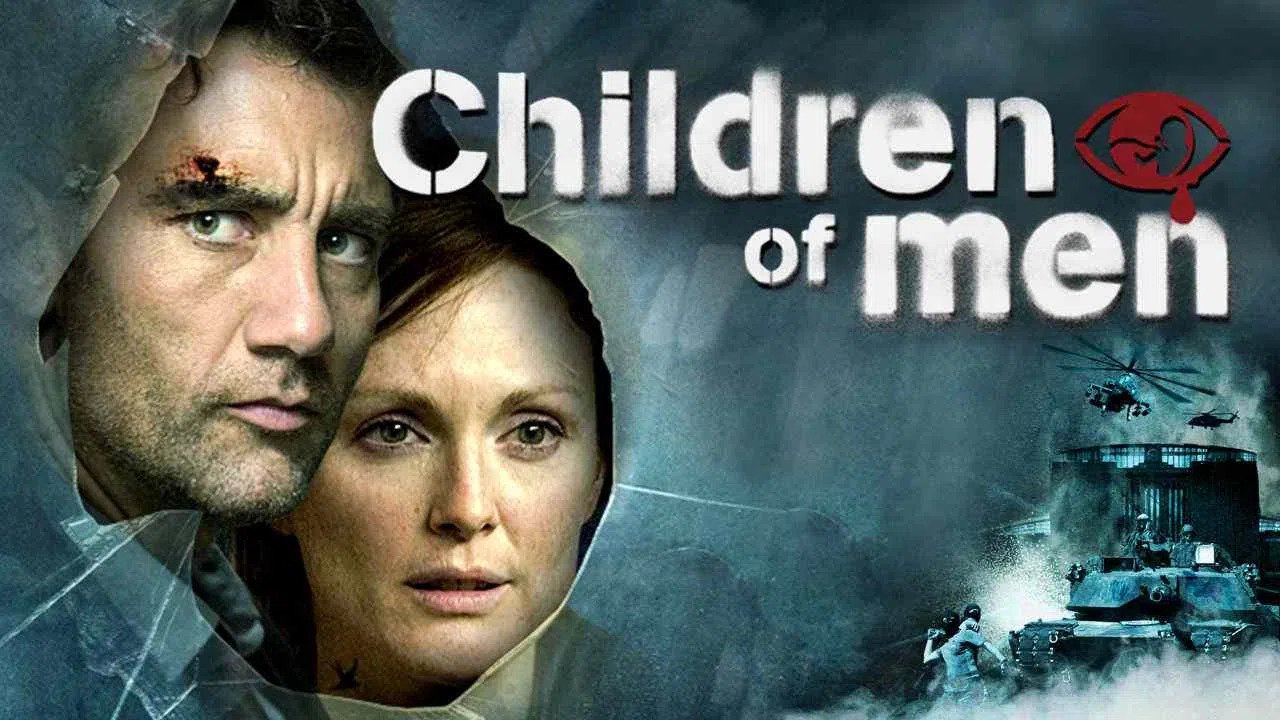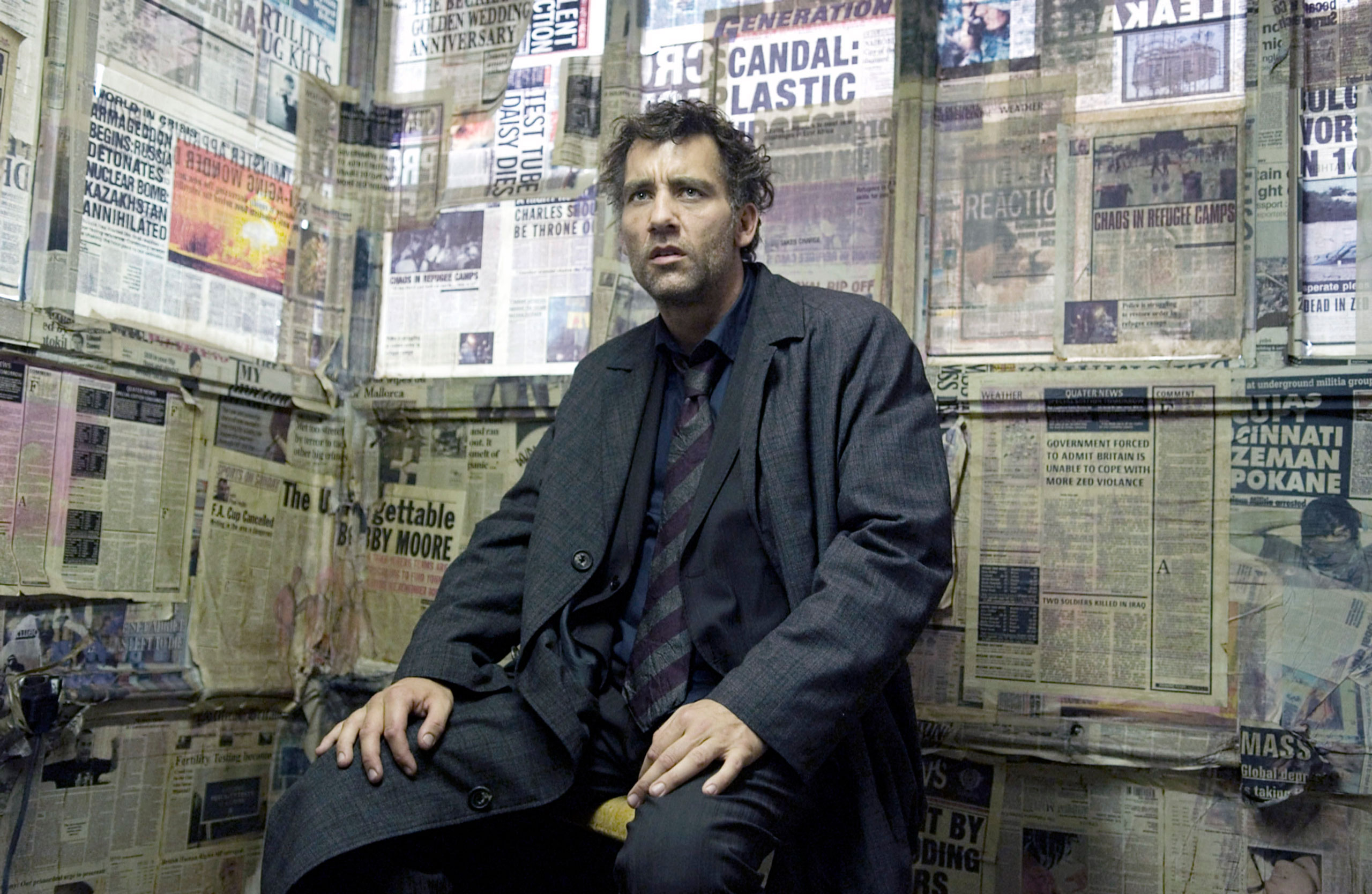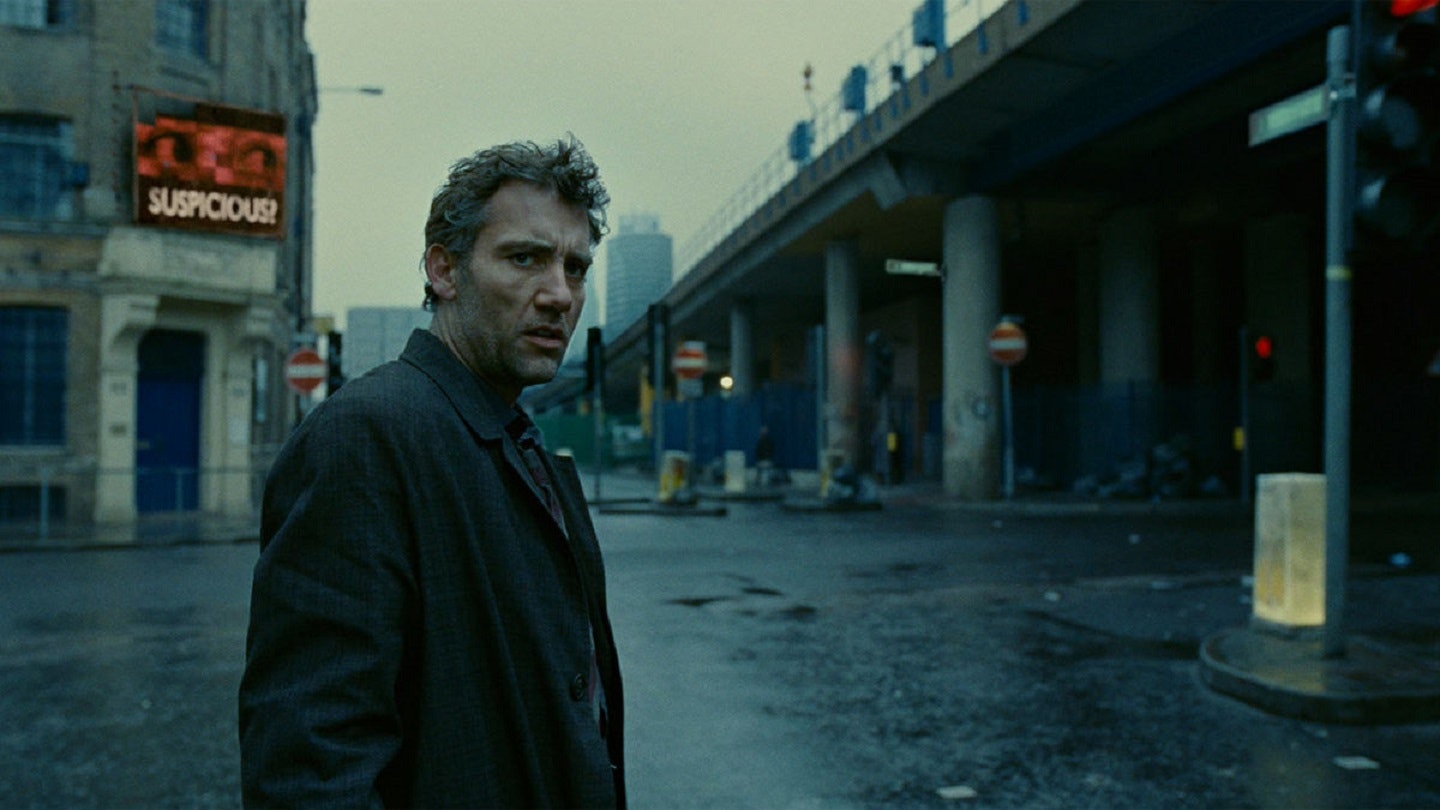Children of Men (2006)
- music
- September 18, 2024

Children of Men (2006), directed by Alfonso Cuarón, is a dystopian science fiction film set in a bleak future where humanity faces extinction due to widespread infertility. Based on P.D. James’ novel of the same name, the film blends political commentary, social critique, and emotional depth into a narrative that is both gripping and thought-provoking. Through its masterful direction, immersive world-building, and poignant exploration of hope, Children of Men offers a powerful reflection on the human condition in the face of overwhelming despair.
Set in the year 2027, the world of Children of Men is one where no children have been born for 18 years, leading to societal collapse, mass chaos, and a loss of purpose for humanity. Governments have turned authoritarian, immigration policies are harshly enforced, and refugees, known as “fugees,” are rounded up and placed in detention camps. The United Kingdom, where the story is set, has become a militarized state, and its population is disillusioned, hopeless, and divided. The film’s premise is deeply grounded in political allegory, reflecting issues such as immigration, nationalism, and the erosion of civil liberties in a world gripped by fear and uncertainty.

At the center of the story is Theo Faron (Clive Owen), a former activist turned cynical bureaucrat who has become emotionally numb after the death of his son. Theo’s life is upended when he is contacted by his estranged wife, Julian (Julianne Moore), who leads an underground resistance group fighting for the rights of refugees. Julian asks Theo to help smuggle a young refugee named Kee (Clare-Hope Ashitey) to safety. Kee’s importance becomes clear when Theo discovers that she is pregnant—the first known pregnancy in nearly two decades.
This revelation transforms the film into a journey of survival, with Theo reluctantly becoming Kee’s protector as they navigate through a hostile and war-torn world. The fact that Kee, a refugee and outsider, carries humanity’s last hope of survival adds a layer of political significance to the story. In a world ravaged by xenophobia and nationalism, the future rests in the hands of someone whom society has rejected. This theme of inclusion versus exclusion runs throughout the film, with the refugee crisis serving as a stark reminder of the real-world humanitarian issues that parallel the fictional world of Children of Men.

The film’s exploration of hope in the face of despair is one of its most powerful aspects. The dystopian setting is bleak, but Kee’s pregnancy represents a flicker of optimism in a seemingly doomed world. Theo, who begins the story as a disillusioned and apathetic man, undergoes a transformation as he becomes invested in Kee’s survival and the possibility of a renewed future for humanity. His journey mirrors the broader theme of the film: the search for hope and meaning in a world where both seem lost. As Theo navigates the dangers of war-torn cities and oppressive regimes, his growing bond with Kee becomes a symbol of the resilience of the human spirit.

Cuarón’s direction is a key element in the film’s success. He utilizes long, continuous takes that heighten the sense of realism and immersion, placing the audience directly in the midst of the chaos. The film’s famous single-take action sequences, particularly the harrowing scene in which Theo and Kee are caught in the middle of a battle between government forces and insurgents, are a testament to Cuarón’s technical brilliance. These scenes are not just spectacles of action but are imbued with emotional weight, as they capture the raw, chaotic energy of war and the fragility of human life within it.
The cinematography, by Emmanuel Lubezki, is stark and gritty, perfectly capturing the grim reality of the film’s dystopian world. The desaturated color palette and handheld camera work give the film a documentary-like feel, further immersing the audience in the bleakness of its setting. The world-building is meticulous, with every detail of the environment—from the crumbling cities to the refugee camps—contributing to the film’s oppressive atmosphere.

Thematically, Children of Men explores the idea of human fragility and the precariousness of civilization. The infertility crisis in the film serves as a metaphor for the existential threats that humanity faces, whether they be environmental, political, or social. The film raises important questions about how societies respond to crisis, and whether they turn toward authoritarianism and division or toward compassion and solidarity. The UK’s treatment of refugees in the film, for example, mirrors real-world issues of immigration and the dehumanization of marginalized groups. Cuarón uses the dystopian setting not just to tell a compelling story, but to make a broader commentary on the dangers of fear and the importance of empathy.
One of the film’s most striking moments comes in a scene where Kee reveals her pregnancy to a group of soldiers during a battle. As they see the newborn child, the fighting temporarily stops, and a sense of awe and reverence takes over. This moment of peace, however fleeting, underscores the power of hope and the unifying potential of life itself. The child represents a new beginning, a chance for humanity to reclaim its future, and for a brief moment, it transcends the divisions and violence that have defined the world of the film.

Clive Owen delivers a standout performance as Theo, portraying him as a reluctant hero who slowly finds redemption through his growing connection with Kee. His portrayal of Theo’s emotional journey is subtle yet powerful, capturing the character’s inner turmoil as he transitions from apathy to hope. Clare-Hope Ashitey’s performance as Kee is equally compelling, bringing both vulnerability and strength to the role of the young mother carrying the future of humanity. The supporting cast, including Michael Caine as Theo’s eccentric friend Jasper, adds depth and humanity to the story, grounding the film’s more fantastical elements in real, relatable emotions.
In conclusion, Children of Men is a deeply resonant and emotionally charged film that combines thought-provoking political commentary with masterful storytelling. Its exploration of themes such as hope, human resilience, and the dangers of fear-driven politics makes it a timeless piece of cinema. Alfonso Cuarón’s direction, along with the film’s stunning visuals and compelling performances, creates an immersive experience that lingers long after the credits roll. At its heart, Children of Men is a film about the human capacity for hope, even in the darkest of times, and the power of life to unite us in the face of destruction.











